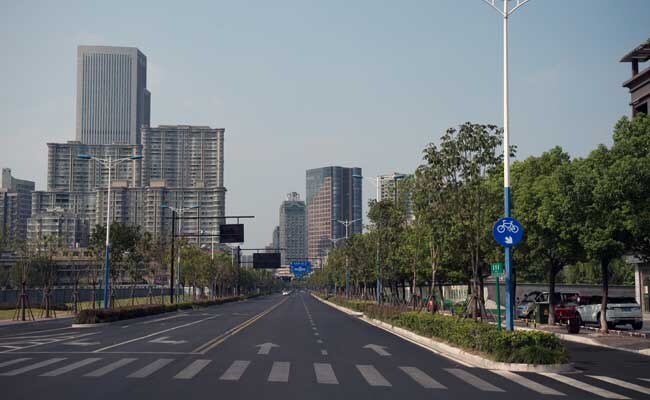
Hangzhou wore a deserted look as people left for holidays ahead of G20 summit. (AFP Photo)
Hangzhou:
With sparse traffic and few people on the roads, the picturesque Chinese city of Hangzhou known for its lakes and streams wore a deserted look as most of its population left for "holidays" ahead of the G20 summit, a gathering of top world leaders set to begin on Sunday.
While the Chinese security agencies mounted a massive security operation including heavy scrutiny of the guests in top hotels, the majority of the city's over nine million population either left for holidays out of the city or stayed indoors reportedly on instructions to ensure a smooth summit.
In many parts of the city, only the authorised G20 vehicles were seen plying on the well laid out roads besides few other vehicles.
While the two-day summit to be attended, among others, by Prime Minister Narendra Modi and US President Barack Obama would kick off on September 4, business leaders of the member countries would hold B20 summit in Hangzhou to finalise recommendations to increase pace of the global economy and trade.
A number of Indian businessmen and the Confederation of Indian Industry's (CII) Shanghai unit and the Shanghai-based India Business Forum would take part in the event, officials said.
The Chinese official media has been saying that the focus of the G20 summit will serve as a vital platform for reversing the trend of trade protectionism and giving new impetus to global trade growth.
The G20 Summit comes at a time when the growth of global trade is lower than that of the global gross domestic product (GDP), which is "indeed rare", Zhang Yuyan, director of the Institute of World Economics and Politics of the Chinese Academy of Social Sciences, told state-run Xinhua news agency.
For its part, India would highlight the need for structural reforms to create jobs, inclusive growth and climate finance at the summit, Secretary Economic Affairs, Shaktikanta Das has said last month.
Mr Das said the main thrust of India's focus at the G20 Summit will be implementation of structural reforms by the member countries to spur the growth of jobs.
G20 members include Argentina, Australia, Brazil, Canada, China, France, Germany, India, Indonesia, Italy, Japan, South Korea, Mexico, Russia, Saudi Arabia, South Africa, Turkey, the United Kingdom and the United States and the European Union.
While the Chinese security agencies mounted a massive security operation including heavy scrutiny of the guests in top hotels, the majority of the city's over nine million population either left for holidays out of the city or stayed indoors reportedly on instructions to ensure a smooth summit.
In many parts of the city, only the authorised G20 vehicles were seen plying on the well laid out roads besides few other vehicles.
While the two-day summit to be attended, among others, by Prime Minister Narendra Modi and US President Barack Obama would kick off on September 4, business leaders of the member countries would hold B20 summit in Hangzhou to finalise recommendations to increase pace of the global economy and trade.
A number of Indian businessmen and the Confederation of Indian Industry's (CII) Shanghai unit and the Shanghai-based India Business Forum would take part in the event, officials said.
The Chinese official media has been saying that the focus of the G20 summit will serve as a vital platform for reversing the trend of trade protectionism and giving new impetus to global trade growth.
The G20 Summit comes at a time when the growth of global trade is lower than that of the global gross domestic product (GDP), which is "indeed rare", Zhang Yuyan, director of the Institute of World Economics and Politics of the Chinese Academy of Social Sciences, told state-run Xinhua news agency.
For its part, India would highlight the need for structural reforms to create jobs, inclusive growth and climate finance at the summit, Secretary Economic Affairs, Shaktikanta Das has said last month.
Mr Das said the main thrust of India's focus at the G20 Summit will be implementation of structural reforms by the member countries to spur the growth of jobs.
G20 members include Argentina, Australia, Brazil, Canada, China, France, Germany, India, Indonesia, Italy, Japan, South Korea, Mexico, Russia, Saudi Arabia, South Africa, Turkey, the United Kingdom and the United States and the European Union.
Track Latest News Live on NDTV.com and get news updates from India and around the world

